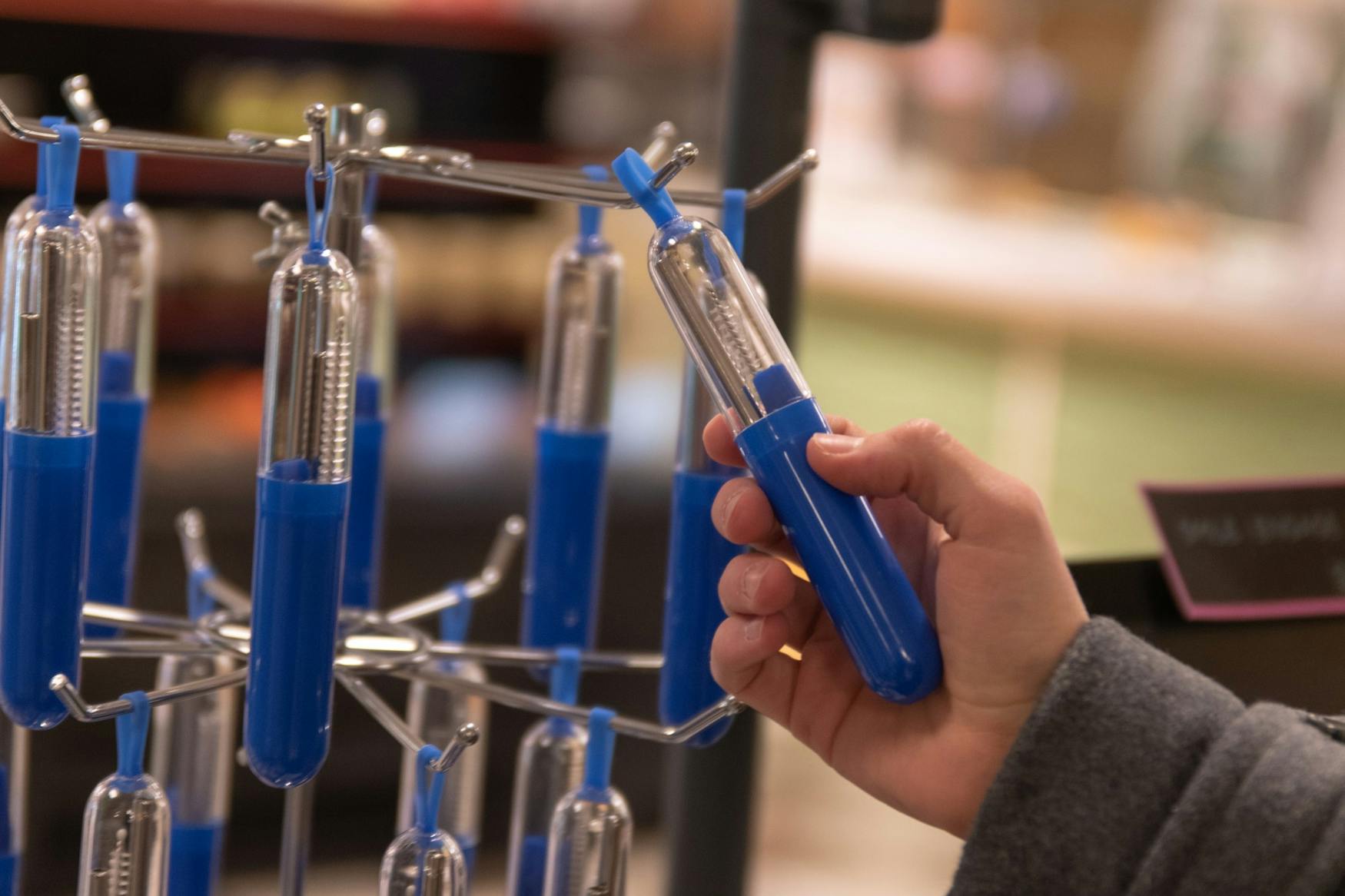Plastic straws now by request only
Students must now request plastic straws, part of a larger campus sustainability effort.
In a joint effort to reduce single-use plastic on campus, the Office of Sustainability and Sodexo announced that following February break, single-use straws will only be given out by request, according to the Office of Sustainability’s website.
In addition to reducing plastic straws, Brandeis has cut back on the use of plastic bags and water bottles as part of a larger plastic reduction initiative that started last year, Manager of the Office of Sustainability Mary Fischer and General Manager of Brandeis Dining Services Andy Allen explained in a joint email to the Justice on Friday.
The decision to only provide plastic straws upon request following February break, Fischer and Allen explained, is to accommodate students who have a disability or do not have reusable straws. Single-use straw bans have recently been criticized for putting individuals with disabilities at risk. Bendable straws are often a necessity for individuals with impared mobility, not only allowing them to drink out of cups without spilling, but also eliminating the difficulties that come with washing reusable straws, according to the Center for Disability Rights.
The Office of Sustainability’s website also explained that students will be encouraged to #skipthestraw when purchasing beverages on campus. #skipthestraw is part of a larger movement to help communities across the United States reduce their dependence on single-use plastic, which was started by the Ocean Conservancy, a non-profit organization dedicated to promoting volunteer work and scientific research to protect oceans. Fischer and Allen explained that with more information available regarding the impacts of single-use plastic, they hope students will choose to avoid straws all together.
Fischer and Allen also stressed that the sale of reusable straws should not be a financial burden to students, reinforcing that purchasing reusables “is just an option.”
Sydney Carim ’23, a member of Brandeis Climate Justice, said in an interview with the Justice on Thursday that reducing plastic on campus is part of a “much bigger plan.” Carim listed reducing food waste, ethically sourcing food on campus and divesting from fossil fuel industries as key steps to making Brandeis a more sustainable campus.
“I only think it makes sense to divest from fossil fuels and stop putting money into an industry that is decimating our planet,” she said.
Last year, several environmentally-focused groups, including the Senate Sustainability Committee and Staff Action on Climate Change, put together a petition to ban the sale of plastic water bottles on campus, said Fischer and Allen in their email. After overwhelming support to reduce plastic on campus — the petition received over 1,100 signatures in support of the ban — the Office of Sustainability began its initiative to phase out the bottles. It is expected to eliminate 10,000 water bottle sales by the end of this year, the Justice reported in an Oct. 8 article. To provide an alternative for single-use bottles, filtered water refilling stations will be available at Dunkin’ Donuts, Einsteins and Starbucks, according to the Office of Sustainability’s website.
The reduction of plastic bags and straws on campus, Fischer and Allen said, has been in the works since 2018 as part of Sodexo’s “Better Tomorrow Plan.” With its 18 commitments for a more eco-conscious future, the “Better Tomorrow Plan” has encouraged Sodexo to promote “sourcing in a responsible way, tackling hunger and malnutrition, promoting gender equality and avoiding food waste,” according to Sean Haley, the regional chair of Sodexo UK and Ireland. Fischer and Allen explained that the plan acts as a guide “of best practices” to reduce single-use plastic waste.
After Sodexo’s current dining contract expires at the end of the semester, Brandeis hopes to continue the plastic reduction initiative with a new vendor. Fischer and Allen noted that plastic reduction was one of the sustainability goals in the dining Request for Proposals. Although it is still unclear whether or not the plastic reduction initiative will expand to plastic utensils, they said that students can always use their own utensils and that the Office of Sustainability regularly hands out reusable utensils.
Brandeis is not the only university reducing plastic on campus. 93 universities across the United States have partnered with the Post-Landfill Action Network, an organization dedicated to helping schools find solutions to reduce their use of single-use plastic on campus, according to the PLAN website.
Stressing the importance and urgency of waste reduction everywhere, and not just at Brandeis, Fischer and Allen said, “Locally, our landfills and incinerators are reaching their capacity, [and] globally, our dependence on disposable items wreaks havoc on the environment.”
—Correction: An earlier version of this article incorrectly implied that Elizabeth Nako made a statement on this issue to the Justice, when she had declined to comment. It was corrected to remove this implication.




Please note All comments are eligible for publication in The Justice.